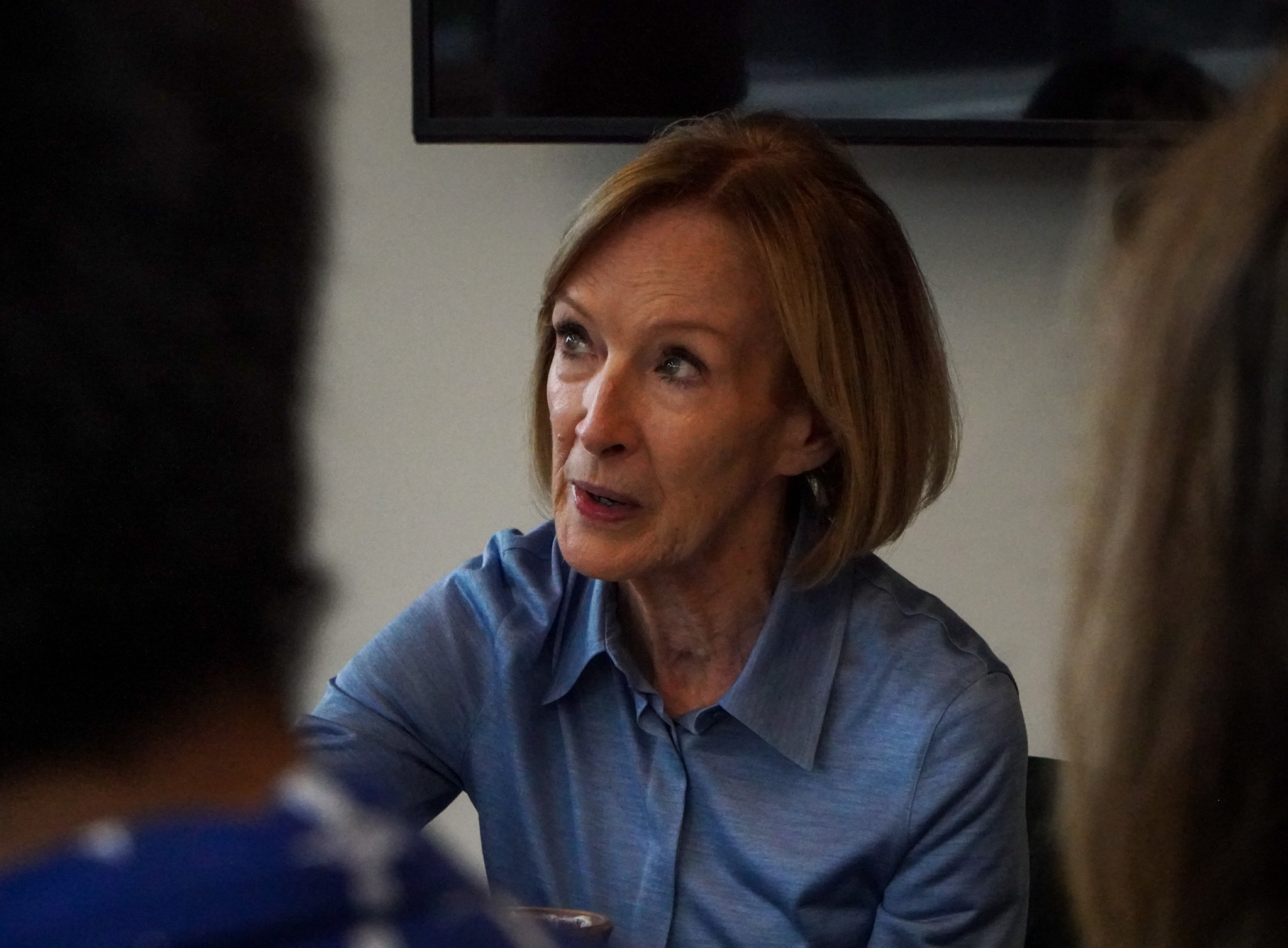Q & A with Judy Woodruff
Oct. 14, 2023

In her October visit to the Brandeis campus, broadcast journalist Judy Woodruff reflected on the hyperpolarization affecting American politics and the growing fear among younger generations to share their opinions. Woodruff, who is best known as the long-time host of PBS NewsHour, shared her views in a wide-ranging Q&A moderated by Professors Neil Swidey and Ann Silvio that was part of Brandeis’ 75th Anniversary weekend. She also received the BNC Sachar Award, which recognizes outstanding achievement in education.
When Woodruff first started as a reporter in the 1970s during the era of broadcast legends like Walter Cronkite and Huntley-Brinkley, her first producer said to her, “Just remember, Judy, nobody gives a damn what Judy Woodruff thinks.” His message to her was to always dig deep for information and cover the news straightforwardly without embellishing the piece with her own opinion.
“That was drilled into me,” Woodruff recalled before a crowd of Brandeis journalism students as well as parents and alumni. The approach, she said, was “just get the facts, get them straight, spend your time worrying about whether you got it accurate or not – and if you don’t have all the story yet, make that clear.” She added: “Frankly, there’s never a time when we have all the final facts in a story. We need to be much more humble about that.”
During the earlier stages of her career, Woodruff faced a significant amount of sexism in the workplace, but she ultimately made a name for herself in broadcast journalism, interviewing the last nine presidents and countless other influential politicians.
Woodruff estimated that the culture of bipartisanship first began to break in America during the Nixon administration and continued to fragment throughout the Clinton and Bush administrations: “What we’re seeing today, you can point to former President Trump, you can point to others,” she said. “But this does have its roots in decades past.”
She also highlighted how the blurring of lines between cultural issues and political realms affect people’s attitudes toward political discourse. “Today, what’s cultural is what’s political,” she said. “All the forces in American politics today are driving us apart rather than together.” Consequently, younger generations are more afraid to speak in defense of their beliefs.
In context to the ongoing war in Gaza, Woodruff emphasized how everyone’s personal connection to the conflict makes it even more different to report than other political conflicts. “We are mourning the terrible loss of life — the atrocities we’ve seen — and trying to understand: Where does it go from here?”
She urged students in the audience to pursue journalism and bring people together one person at a time. “There couldn’t be a more important profession to go into [...] What matters most in life is are you making a difference? Are you feeling like you’re making a contribution? Are you touching people’s lives?” To Woodruff, that relentless gathering of information and devotion to her audience is where the excitement of journalism lies.
Story by Anika Jain, Photo by Khimaya Bagla.